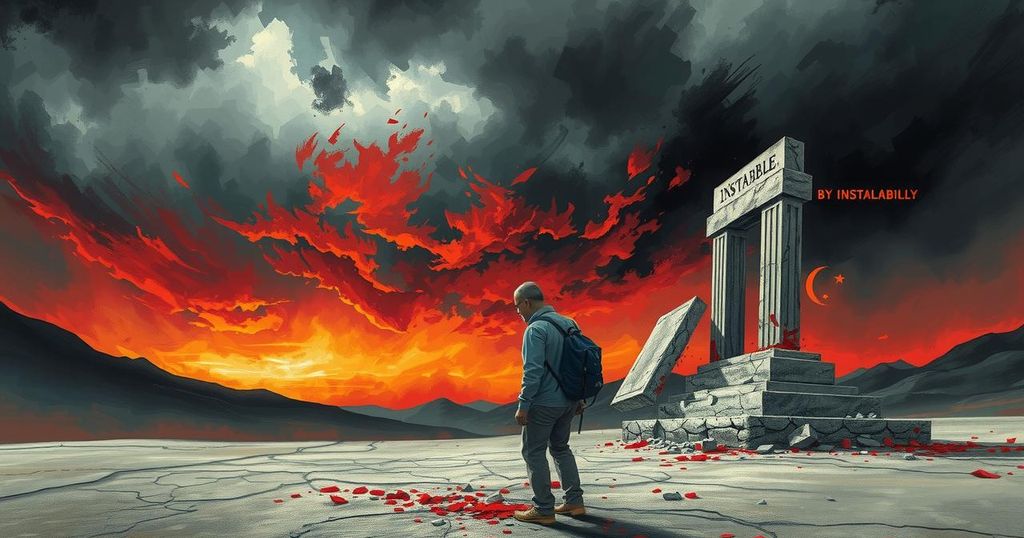Riek Machar’s arrest has heightened tensions in South Sudan, alarming UN officials. The power-sharing deal with President Kiir is failing, endangering peace and threatening renewed conflict following years of civil war. Clashes between rival forces intensify, prompting fears of further violence and international concern over the stability of the region.
The arrest of South Sudan’s First Vice President Riek Machar has escalated tensions in the nation, drawing concern from the United Nations. His detention was executed by a convoy of 20 armed vehicles, signaling a potential return to conflict in a country already fragile from years of civil war. Analysts note that the power-sharing arrangement between President Salva Kiir and Machar has deteriorated, raising fears of renewed violence.
A recent statement from Machar’s party condemned the unconstitutional actions taken by the Minister of Defense and the Chief of National Security, who oversaw the arrest without disclosing the charges against him. His bodyguards were reportedly disarmed, which further heightened the uncertainty surrounding his situation.
According to UNMISS, the pervasive unrest threatens to plunge South Sudan back into widespread conflict, which would carry dire implications for the region. Since the peace deal in 2018, the country has experienced continued discord, underscoring the fragility of its political landscape.
Further complicating matters, over 20 of Machar’s allies have been arrested since February. Violent exchanges between factions loyal to both Kiir and Machar have been noted, especially in Upper Nile State, where government forces are believed to have attacked military outposts linked to Machar. These incidents have raised alarms regarding a resurgence of hostilities.
Community sentiment is one of apprehension, as many citizens express worries about a relapse into war. Calls for dialogue rather than violence have emerged, highlighting a desire for sustainable peace amidst the escalating tensions. Additionally, international observers, including Norway and Germany, are reacting by reducing their presence in Juba, fearing for the safety of their citizens.
The recent arrest of Riek Machar signifies a critical juncture for South Sudan, with the nation’s leaders teetering on the brink of renewed conflict. The deterioration of the power-sharing deal and ongoing violent clashes emphasize the urgent need for dialogue. To prevent further escalation, it is imperative that both President Kiir and Machar prioritize political negotiation over military confrontation, with international bodies urging for enhanced engagement.
Original Source: www.newstopicnews.com




